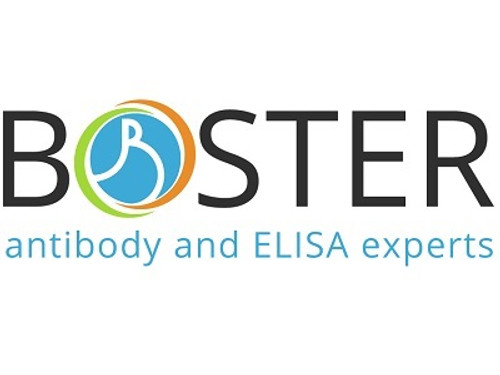Product Description
Recombinant Human Lin28-TAT Protein [E. coli] | 100-417S/100-417 | ReliaTech
Species: Human
Host / biotech: E. coli
Comment: N/A
Label: TAT-Fusionprotein
Clone / Antibody feature: N/A
Subcategory: Cytokines & Growth Factors
Category: Recombinant Protein
Synonyms: CSDD1, LIN28A, ZCCHC1, Zinc finger CCHC doamin-containing protein 1
Isotype: N/A
Application: N/A
Detection Range: Measured by its ability to induce fluorescence in Lin28 reporter cells (293 cells transfected with fluorescent protein genes under Lin28 control). Optimum activity was achieved at 20 μg/ml after incubation for 72 hr.
Species Reactivity/Cross reactivity: Human
Antigen: N/A
Description: Lin28 is a RNA-binding protein that belongs to a diverse family of structurally-related transcription factors. Lin28 is found abundantly in embryonic stem cells (ESCs), and to a lesser extent in placenta and testis. Lin28 has been shown to block let-7 microRNA processing and maturation, a necessary step in the differentiation of stem cells and certain cancer cell lines. Together with Sox2, Oct4, and Nanog, Lin28 can induce the reprogramming of primary human fibroblasts to a pluripotent state. Lin28 and other regulatory proteins can be introduced into cells by DNA transfection, viral infection, or microinjection. Protein transduction using TAT fusion proteins represents an alternative methodology for introducing proteins into primary as well as transformed cells. Recombinant human Lin28-TAT is a 24.4 kDa protein containing 222 amino acid residues, including 13- residue C-terminal TAT peptide.
Purity Confirmation: > 90% by SDS-PAGE & HPLC analyses
Endotoxin: < 0.1 ng/µg of protein (<1EU/µg)
Formulation: lyophilized
Storage Handling Stability: N/A
Reconstituation: N/A
Molecular Weight: 24.4 kDa
Lenght (aa): 222
Protein Sequence: GPSVSNQQFA GGCAKAAEEA PEEAPEDAAR AADEPQLLHG AGICKWFNVR MGFGFLSMTA RAGVALDPPV DVFVHQSKLH MEGFRSLKEG EAVEFTFKKS AKGLESIRVT GPGGVFCIGS ERRPKGKSMQ KRRSKGDRCY NCGGLDHHAK ECKLPPQPKK CHFCQSISHM VASCPLKAQQ GPSAQGKPTY FREEEEEIHS PTLLPEAQNG GYGRKKRRQR RR
NCBI Gene ID: 79727
 Euro
Euro
 USD
USD
 British Pound
British Pound
 NULL
NULL

![Recombinant Human Lin28-TAT Protein [E. coli] Recombinant Human Lin28-TAT Protein [E. coli]](https://cdn11.bigcommerce.com/s-452hpg8iuh/images/stencil/1280x1280/products/671584/929427/logo__42078.1651665136__25314.1651684317.jpg?c=2)
![Recombinant Human Lin28-TAT Protein [E. coli] Recombinant Human Lin28-TAT Protein [E. coli]](https://cdn11.bigcommerce.com/s-452hpg8iuh/images/stencil/100x100/products/671584/929427/logo__42078.1651665136__25314.1651684317.jpg?c=2)
![Recombinant Human Lin28-TAT Protein [E. coli] Recombinant Human Lin28-TAT Protein [E. coli]](https://cdn11.bigcommerce.com/s-452hpg8iuh/images/stencil/500x659/products/671584/929427/logo__42078.1651665136__25314.1651684317.jpg?c=2)
![Recombinant Human Nanog-TAT Protein [E. coli] Recombinant Human Nanog-TAT Protein [E. coli]](https://cdn11.bigcommerce.com/s-452hpg8iuh/images/stencil/500x659/products/671736/929579/logo__42078.1651665136__21405.1651684363.jpg?c=2)
![Recombinant Human TIGAR-TAT Protein [E. coli] Recombinant Human TIGAR-TAT Protein [E. coli]](https://cdn11.bigcommerce.com/s-452hpg8iuh/images/stencil/500x659/products/672089/929932/logo__42078.1651665136__06899.1651684474.jpg?c=2)
![Recombinant Human Sox2-TAT Protein [E. coli] Recombinant Human Sox2-TAT Protein [E. coli]](https://cdn11.bigcommerce.com/s-452hpg8iuh/images/stencil/500x659/products/672022/929865/logo__42078.1651665136__88447.1651684449.jpg?c=2)
![Recombinant Human p16-INK4a-TAT Protein [E. coli] Recombinant Human p16-INK4a-TAT Protein [E. coli]](https://cdn11.bigcommerce.com/s-452hpg8iuh/images/stencil/500x659/products/671813/929656/logo__42078.1651665136__30286.1651684385.jpg?c=2)

![Recombinant Human ApoE4 Protein [E. coli] Recombinant Human ApoE4 Protein [E. coli]](https://cdn11.bigcommerce.com/s-452hpg8iuh/images/stencil/500x659/products/670465/928308/logo__42078.1651665136__91980.1651683807.jpg?c=2)
![Recombinant Human TWEAK Protein [E. coli] Recombinant Human TWEAK Protein [E. coli]](https://cdn11.bigcommerce.com/s-452hpg8iuh/images/stencil/500x659/products/672205/930048/logo__42078.1651665136__65407.1651684501.jpg?c=2)
![Recombinant Human Endostatin Protein [E. coli] Recombinant Human Endostatin Protein [E. coli]](https://cdn11.bigcommerce.com/s-452hpg8iuh/images/stencil/500x659/products/670898/928741/logo__42078.1651665136__62036.1651684114.jpg?c=2)
![Recombinant Human Resistin Protein [E. coli] Recombinant Human Resistin Protein [E. coli]](https://cdn11.bigcommerce.com/s-452hpg8iuh/images/stencil/500x659/products/671939/929782/logo__42078.1651665136__63049.1651684425.jpg?c=2)